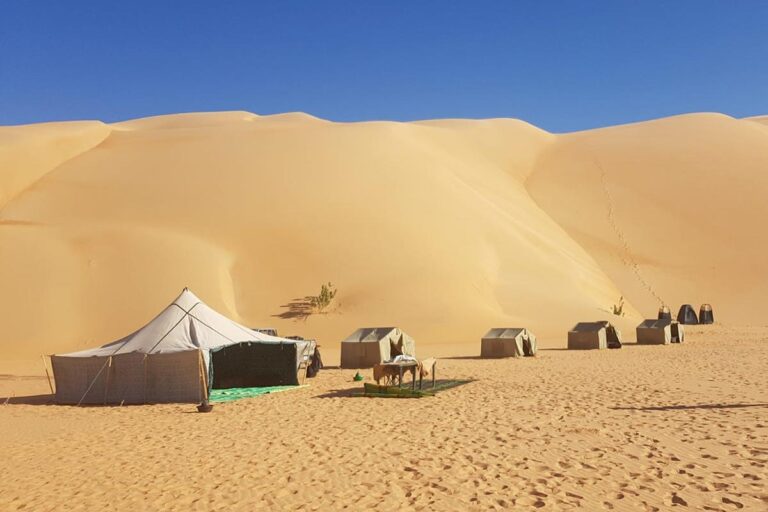treslunasviajes
29 de August de 2023
10 things you should know before going to Mauritania

Mauritania, a former French colony that has become an independent state, is located in the northwest region of Africa. This country can be described as a tourist destination with vast territories to explore. Its wealth lies mainly in the land, which harbors valuable mineral resources, especially iron and other minerals. On the map, Mauritania occupies a strategic position, being a crossing point for European travelers exploring the African continent.
Where is Mauritania?
Located in the northern region of Africa, Mauritania shares borders with the Atlantic Ocean to the west and the Western Sahara to the northwest. This country has recently emerged as one of the new oil producers on the African continent, thanks to the discovery of valuable oil deposits in its territory.
However, tourism in Mauritania has not been particularly well developed or actively promoted. Despite being a country with considerable potential as a tourist and historical destination, several factors have hindered its development in this area.
Travel to Mauritania can offer both rewarding and challenging experiences. The time of year you decide to visit the country plays a crucial role, as summer brings with it intensely scorching heat that affects the entire country, leaving it thirsty and subject to drought. In addition, the quality of your experience depends largely on the people you meet during your trip and, of course, on your own state of mind and perspective.
Mauritania offers an abundance of landscapes marked by a unique national flavor that you will not find anywhere else. From the moment you set foot in this country, you will encounter a variety of sights and experiences that capture the essence of this land of contrasts in North Africa.
Things to consider when traveling to Mauritania:
1. What documents are required to visit Mauritania?
Passport/ID: To enter Mauritania, a valid passport with a validity of more than six months is required. In case the validity period is shorter, the authorities will not issue the visa, which may prevent entry into the country.
Visas: It is necessary to obtain a visa to enter Mauritanian territory.
Entry visas to Mauritania can be processed in the following ways:
-
Before traveling: You can arrange your visa before traveling to Mauritania at the Mauritanian Embassy in Madrid.
-
On Arrival: You also have the option of obtaining a visa on arrival at the international airports of Nouakchott and Nouadhibou, as well as at the border posts of PK55 (with Western Sahara), Rosso and Diama (with Senegal), and Gougui Zemal (with Mali). However, it is not possible to obtain visas at the Consulate General of Las Palmas de Gran Canaria, since this consular office does not have the technical means to issue them.
If you choose to process your visa on arrival from Spain, please note that you will have to pay the corresponding fees in Euros and in cash. Rates vary as follows:
- 55 euros for transit visas, with a duration of up to 30 days and a single entry.
- 160 euros for short stays, up to 90 days, with the possibility of double entry.
- 200 euros for long stay and multiple entry visas.
It is important to note that, in practice, visas are generally issued at border posts for a period of one month. Visas of more than 30 days are granted only on an exceptional basis and after adequate and complex justification.
If you are scheduled to leave the country after the expiration date of your visa, the Mauritanian authorities will usually ask you to renew the authorization by paying the corresponding fee at the appropriate border post.
2. Is it safe to travel to Mauritania?
It is important to address the issue of security in Mauritania separately. Due to persistent poverty and lack of material resources, the crime rate in Mauritania has experienced a significant increase in recent times. One of the risks that persists in this country is kidnapping, and this risk remains at a relatively high level.
Especially in the capital of Mauritania, it is important to be aware of the dangers associated with this phenomenon. Extremist and terrorist groups have been preying on Western tourists and those who may give the impression of being financially well-off. Therefore, it is advisable not to emphasize wealth or show a high level of income while in the country.
While significant efforts have been undertaken in recent years to combat terrorism and the incidence of kidnappings has been reduced, maintaining caution and vigilance remains of paramount importance. Traveling responsibly and respecting local recommendations is essential to ensure a safe experience in Mauritania.
3. What is the best time to travel to Mauritania?
The best time to travel to Mauritania depends on your preferences and the activities you wish to do in the country. In general, two main seasons can be identified:
-
Dry Season (November to April): This is the high season for tourism in Mauritania. During these months, the climate is more temperate and pleasant, with daytime temperatures ranging from 20°C to 30°C. This is the best time to explore the Sahara desert and coastal towns. It is also the ideal time for bird watching, as many migratory species visit the country during the African winter.
-
Rainy Season (May to October): These months are the rainy season in Mauritania. However, rainfall is scarce and sporadic in most of the country. In the southern region, especially on the Senegal River, rainfall is more significant and can cause temporary flooding. Temperatures during this period may be higher and exceed 30°C, especially in the interior of the country.
Your choice of season should be based on your weather preferences and the activities you plan to do. If you want to avoid extreme heat and enjoy a more pleasant climate, the dry season from November to April is the best option. On the other hand, if you want to experience the authenticity of local life and are willing to tolerate higher temperatures, the rainy season may be right for you. Also, keep in mind that security and weather conditions may vary, so check travel updates and local recommendations before planning your visit.
4. Mauritanian people
You may be surprised to hear that Mauritania is a place where the hospitality and friendliness of its people shine brightly. You might wonder how this fits in when issues such as safety and hazards were previously mentioned. The answer lies in the fact that, as explained above, the incidence of violent crime has declined markedly in recent years, with most of these incidents occurring in the capital, Nouakchott.
Nouakchott, as the epicenter of the country, attracts some tourists, many of whom may be considered potential targets by local criminals. However, nowadays, the most common problem is often fraud related to local currency exchange.
In other words, ordinary Mauritanian residents tend to be open and straightforward people, willing to help even strangers. It may be that the lack of tourism, or more precisely, the scarcity of visitors, has had a positive effect on the country. Here, people who are not used to receiving guests are sincerely pleased with the arrival of new faces and welcome visitors with genuine curiosity. Mauritanian hospitality is a comforting facet of this destination that can enrich your travel experience.
5. Nouakchott
It is time to explore the central city of the country, the capital of Mauritania: Nouakchott. This city is located on a plateau near the coast of West Africa, on the shores of the Atlantic Ocean. Nouakchott acquired its status as the state capital in 1960, just after the independence of Mauritania. In its early days, Nouakchott was a small village that often served as a refuge for nomads on the move. However, over time and as a result of a drought, this place began to transform into an urban settlement in constant development.
The city has a lively central square, a major airport and a growing industrial zone. In addition, Nouakchott has established a strategic port facility for the export of oil and copper. Among the outstanding attractions and sights is the National Museum of Mauritania, which offers fascinating exhibits on the life of this small West African nation, its rich traditions and deep culture. The museum houses valuable archaeological finds and ancient artifacts that shed light on the country’s history.
Nouakchott is also the economic epicenter of Mauritania and is home to the country’s largest markets. Virtually all imported products arrive through the ports of Nouakchott and Nouadhibou. Although there is a supermarket, this type of establishment is not in great demand, since the local inhabitants are accustomed to markets and the commercial relationships that take place there. The dynamics and vitality of the markets are an integral part of daily life in Nouakchott, and people tend to be skeptical of large shopping malls.
6. Animals in Mauritania
Mauritania will surprise you with the constant presence of animals in everyday life. Be prepared to come across a diverse range of living creatures, from goats and chickens to donkeys and camels, which are an integral part of the local culture. Even cows make an appearance from time to time.
Donkeys are true carriers of everything imaginable, and it is common to see locals transporting a wide variety of objects using these faithful animals. In the cities, it is possible to find curious scenes reminiscent of a parking lot, but instead of cars, they are filled with donkeys and camels loaded with various goods and supplies, including essential water.
Goats also have a presence, and sometimes roam freely in the city without a specific owner. Surprisingly, these animals coexist peacefully and interact harmoniously with each other. It is not uncommon to witness amusing situations, such as a camel relaxing quietly in the back of a vehicle or donkeys leading carts loaded with goats.
This daily life marked by coexistence with the local wildlife is an authentic and charming part of the Mauritania experience that you will surely remember fondly.
7. Mauritania and slavery
An intriguing aspect of Mauritania that cannot be overlooked is its relationship with slavery, a reality that has endured in this land for more than a millennium. While the current situation may not be as frightening as this statement might suggest, it is important to understand its context. Slavery became an ingrained tradition in Mauritania over the centuries, even after Europe officially abolished slavery and the slave trade. Mauritania continued with this system until relatively recently.
In 1981, the president signed a decree to officially abolish slavery in Mauritania, but the implementation and punishment of this crime was significantly delayed, only in 2007. Although life has become freer, Mauritania still faces challenges to completely eradicate slavery. According to various sources, approximately 20% of the Mauritanian population still does not enjoy full rights. People are sold as merchandise on the market, sometimes even for a symbolic price. They then serve their masters by performing domestic work and, unfortunately, the girls may become concubines of the wealthy owners.
What is most heartbreaking is that, in Mauritania, slavery is not perceived as aberrant. The slaves themselves consider it their duty to serve their masters; they see it as a kind of deep-rooted tradition and a tribute to their ancestors.
However, Mauritania is a country of contrasts and nuances. After exploring different perspectives in blogs and articles, one can get a more complete picture. Some describe the country as a difficult place to live, with challenges such as aridity, environmental degradation and poverty. While these observations may be valid in certain regions, other travelers note that, despite the challenges, the people of Mauritania are friendly and responsive. In addition, the country has considerable mineral resources, including iron ore and recently oil, which could improve its economic situation in collaboration with Western countries.
Mauritania, where it is at present, could be the foundation of a beautiful and prosperous city in the future. Adventurers, we wish you the best of luck in your travels and remind you to always take precautions in your journey.
8. Religion
It is essential to remember that Mauritania is a deeply religious nation, as indicated by its full name, the Islamic Republic of Mauritania. This characteristic is manifested in various areas and situations of daily life, where specific guidelines and rules are followed.
Even on the streets, a particular set of rules of conduct is observed, including specific guidelines for women. During namaz (Islamic prayer) in Mauritania, it is common for bus or minibus drivers to stop transport to allow people to perform their prayers on time. Women usually wear long tunics that cover the head. Moreover, in public, married couples avoid holding hands, as all public displays of mutual affection are strongly discouraged.
An important detail is that, during the month of Ramadan, if anyone is allowed to eat or drink in the presence of a Mauritanian who is fasting, it is considered extremely impolite. These aspects reflect the deep respect and observance of religious traditions in Mauritania, which influence the daily life of its inhabitants in a significant way.
9. How to dress in Mauritania?
When visiting Mauritania, it is important to dress respectfully and appropriately, taking into account local culture and customs. Here are some guidelines on how to dress in Mauritania:
-
Conservative Dress: Mauritania is a Muslim-majority country, and conservative dress is the norm. Both men and women should dress modestly and avoid tight or revealing clothing. For men, this generally means long pants and long-sleeved shirts. For women, it is recommended to cover the body and head with a long tunic and a scarf.
-
Head Covering: Women must wear a headscarf or hijab in public. This is a sign of respect for local culture and religion. Even some local women may wear a garment called “melhfa,” which covers the entire body and head.
-
Avoid Transparent or Short Clothing: Avoid transparent or short clothing, such as tank tops or shorts. These types of clothing are not appropriate in Mauritanian society.
-
Desert Clothing: If you plan to venture into the desert, it is important to bring adequate clothing to protect you from the sun and heat. This includes long-sleeved clothing, long pants and a scarf or turban to cover the head and face from the sun and wind.
-
Closed Footwear: In rural or desert areas, it is advisable to wear closed and resistant footwear to protect your feet from rough terrain and sharp objects.
-
Respect for Religion: Shows respect for local religious practices. If you visit a mosque, be sure to remove your shoes before entering and follow the proper dress instructions provided on site.
Remember that respect for local culture and customs is essential when visiting a foreign country. By dressing conservatively and respectfully, you will not only better integrate into Mauritanian society, but also show consideration for its values and beliefs.
10. Others
Nomadic Culture: In the vast expanses of the desert, you can still find nomadic communities leading a traditional lifestyle. Learning about their customs, crafts, and ways of life is an authentic cultural experience.
Mauritanian Hospitality: The Mauritanian population is known for its warm hospitality. Locals will welcome you with friendly smiles and will be delighted to share their culture and traditions with you.
Muslim Traditions: Mauritania is a predominantly Muslim country, and Islamic traditions influence daily life and festivities. Exploring religious architecture and participating in cultural events provides a unique insight into Mauritanian life.
Desert Adventures: Adventure enthusiasts will find Mauritania the perfect place for desert trekking, sandboarding on the dunes, and other exciting activities that take advantage of the vastness of the landscape.
Exotic Cuisine: Mauritanian cuisine combines Arab, African, and Berber influences. Try traditional dishes such as couscous, thieboudienne (a fish stew), and Mauritanian tea, an integral part of social culture.
Desert Festival: If you plan your visit in January, you might be lucky enough to witness the Desert Festival in Chinguetti. This cultural event attracts artists from around the world and offers vibrant music, dance, and celebrations.




